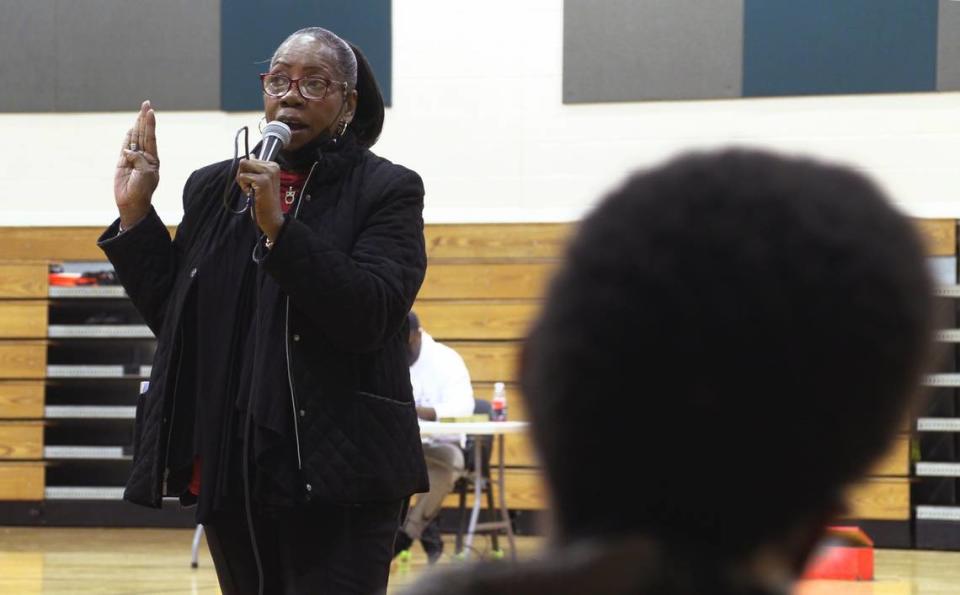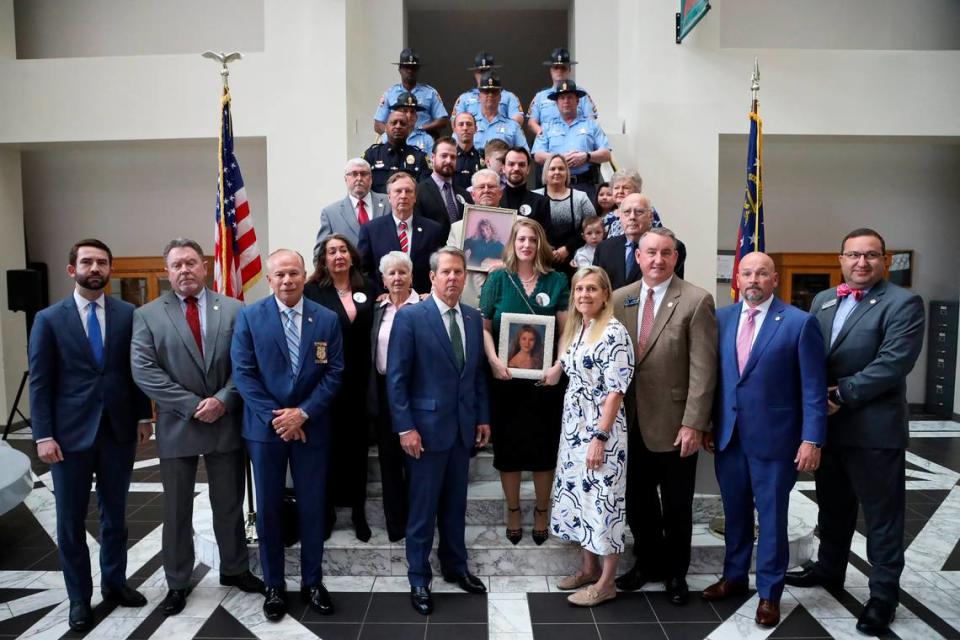A new law lets homicides be reinvestigated. Why don’t more Columbus cases use it?
Reality Check is a Ledger-Enquirer series digging deeper into key issues and focusing on accountability. Have a suggestion for a future story? Email mynews@ledger-enquirer.com.
Jaleel Ali was only 14 years old when he was fatally shot while walking with five friends in south Columbus. He laid in the front yard at 3939 Calhoun Drive for more than six hours before he was officially declared dead. His family waited hours to hear that he had died, and they have waited years to find out who killed him.
Rasheeda Ali, Jaleel’s grandmother, has sought out answers about her grandson’s murder since Oct. 24, 2021, the day he died. She said she is distraught that his case remains unsolved.
“We just need to try to get to the bottom of this,” Ali said. “I feel real bad that no one knows who did it.”
Ali’s other grandson was also shot in 2021, just 12 days before Jaleel was killed. His case has not been solved either.
“The bullet lodged in his hip,” she said. “He survived and became stable that day. He never wanted to talk about why he got shot or who shot him. He just could not talk about it.”
Ali said similar factors played a part in the difficulty of solving Jaleel’s case.
“He was with five of his friends,” she said. “All five of them had a different story to tell the police that night as to what happened, so it left the police in a very bad place.”

Ali said despite the complicated situation, she believes the police should have made more progress on his case.
“They’ve solved quite a few other cases,” she said. “I know everybody says to let the police do their job, but this is going on three years now.”
Records from CPD indicate Jaleel’s case is one of 188 unsolved homicides in the city. Almost two-thirds of those cases are eligible for reinvestigation under the Coleman-Baker Act, a year-old law that allows agencies to reopen unsolved homicides, but CPD has only received one request since the act took effect last year. The only request CPD received was not approved because the case had been closed.

Jaleel’s murder is not eligible for a Coleman-Baker Act request because it is not yet 3 years old.
Function
The act provides two main services across the state: cold case investigations and funding for the Georgia Bureau of Investigation’s cold case unit.

Under the legislation, every police department in the state needs to allow applications for case reinvestigation from the immediate family members of cold case homicide victims. Not every case can be reopened though, because cases have to meet certain criteria to be approved.
A spokesperson from the Columbus Police Department outlined the restrictions for cases.
“First off, every case has to be a murder,” the spokesperson said. “The initial investigation has to have been done by CPD, because we need the records here to look over them again. Every lead needs to have been exhausted, and the case needs to be classified as a cold case, which for us means it’s at least three years old.”
In addition, the act provided over $5.2 million to the GBI in 2021. This money allowed the agency to create the cold case unit and hire agents who are exclusively focused on unsolved homicides, a position most police departments don’t offer.
The GBI has investigated roughly 600 unsolved homicides between 1970 and 2021, all of which are eligible for Coleman-Baker Act requests.
Background
The Coleman-Baker Act was signed by Gov. Kemp April 28, 2023, and made effective July 1 the same year. State Rep. Houston Gaines, who represents parts of Barrow, Clarke, Jackson and Oconee counties, sponsored the law because of its potential.

“This law is a mechanism for families of cold case victims to push for reinvestigation on behalf of their loved ones,” he said. “The GBI will be able to secure justice for so many victims across the state.”
Gaines said the law will serve hundreds of families across Georgia, but its inspiration was just two: the families of homicide victims Rhonda Coleman and Tara Baker. Gaines said Baker’s case is particularly significant to him because she was killed in his jurisdiction.
“Their families came together and approached me to sponsor some legislation to reinvestigate cold cases,” he said. “It’s so amazing to see the work they’ve put into advocating for Tara and Rhonda.”
Coleman, a lifelong resident of rural Jeff Davis County, was found dead in Montgomery County in 1990 when she was just 18 years old. Her official cause of death was never determined, and her case remains unsolved nearly 35 years later.

Baker was murdered in her Athens apartment in 2001. Her case stopped producing leads shortly after her death until GBI reopened her case Sept. 2023. After months of investigation, agents arrested Edrick Lamont Faust, 48, with her murder.
Gaines said he looks forward to the opportunities the act can bring across the state, even though large cities like Columbus haven’t seen widespread usage of the policy.
“A lot of folks are just learning about this law,” Gaines said. “I hope the success in the Baker case will inspire people to seek justice for their loved ones. It’s what they deserve.”


